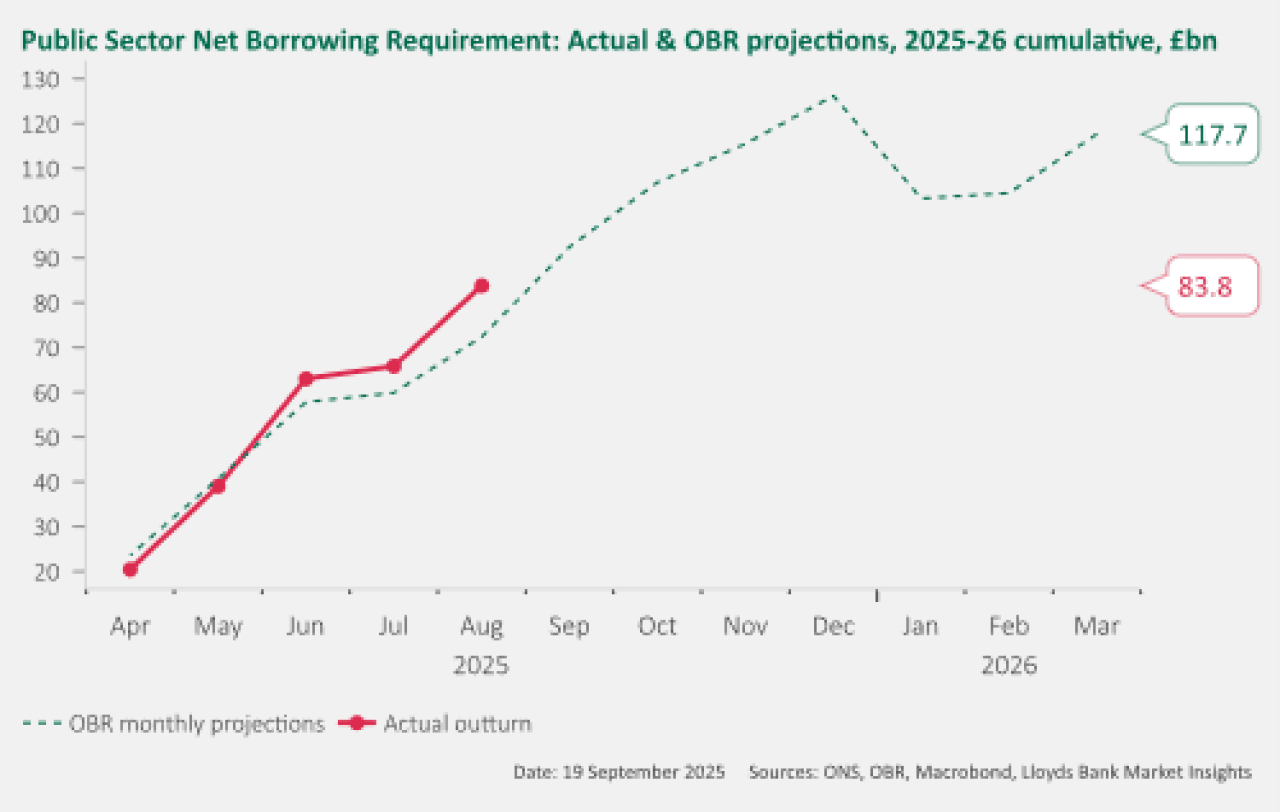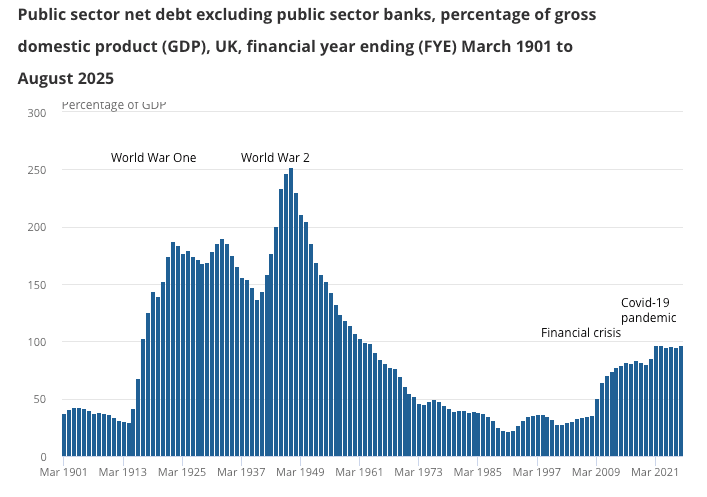
Above: Chancellor of the Exchequer Rachel Reeves and Steve Reed, Secretary of State for Housing. Picture by Simon Dawson / No 10 Downing Street.
UK fiscal risks are likely to be at the forefront of currency market concerns this week.
The British pound faces a tense week as the Labour Party conference gets underway, and calls for the government to boost spending and borrowing will be made.
Ahead of the conference, The Telegraph reports "Labour ministers beg Reeves to unleash public spending." The article says leading figures in the ruling Labour Party have called for Chancellor Reeves to boost public spending and borrow more, even if it means she breaks the rules that seek to ensure the country's finances remain sustainable.
The article signals that lenders to the UK government (bond buyers) need to be increasingly wary. It will mean the cost of UK debt - as measured by bond yields - remains elevated relative to other G7 countries.
The report says ministers want Reeves to ease her fiscal rules to allow more public spending.
Reeves already needs to fill a £30BN black hole in the public finances to ensure she doesn't break the fiscal rule - which she described as "iron clad" - that the government must be on course to eliminate the deficit by 2030.
Calls for more spending will mean that the hole only grows. However, for the bond market to stay on an even keel, Reeves must fill the hole by raising taxes and/or cutting spending.
The fear is Reeves will ultimately water down or break the fiscal rule, causing investors to dump UK bonds and pound sterling.
The pressure to do so comes as Labour's party conference gets underway. One Minister told The Telegraph: "Everybody is begging for the fiscal rules to be slackened so we have a bit more we can do in our portfolios, and lots of ministers have made that case to the Treasury."
Two more government sources said that Labour's fiscal rules had been a subject of debate in meetings between the Treasury and Whitehall departments in recent weeks.
Political pressure is being piled on Prime Minister Keir Starmer and Reeves to be more generous in spending and borrow more by Andy Burnham, the current mayor of Manchester, who confirmed last week he is considering challenging Starmer for his position.
Burnham has alarmed market watchers with his call for the government to stop being "in hoc" to bond markets, a clear signal that he thinks the government can simply borrow to fund spending pledges.
The developments were credited for pushing pound sterling lower last week.
"GBP also lost ground to EUR... suggesting, alongside the underperformance of gilts, that UK political risks were a market driver to some extent," says a market note from Lloyds Bank.

Above: UK borrowing for this year is running ahead of forecasts.
The pound to euro exchange rate is set to record its fourth consecutive monthly decline, trading at 1.1457 at the time of writing Monday. The pound to dollar conversion is down half a per cent this month at 1.3444.
"Someone reported in the press as a potential challenger to the Prime Minister, expressing criticism of the government being 'in hock' to the bond markets, is clearly fairly objectively not a positive for gilts," adds the report.
The bond market simply cannot be ignored, as it is nothing more than a massive pool of diverse lenders that is primarily concerned about whether or not they will be repaid.
Former Prime Minister Liz Truss learnt the hard way when she asked the bond market to borrow tens of billions to subsidise household energy bills and cut taxes at the same time.
She tanked the bond market and the pound.
Above: The UK's total debt pile is exceptional for a time when the country is not fighting an existential war.
The episode offers a useful blueprint for what to expect if Reeves bows to pressure from those who would seek to borrow and spend more.
Already it is reported the government will drop a two-child limit on child benefits, which is set to cost in the region of £3BN.
Other press reports have raised the possibility of the government coming under renewed pressure from some of its MPs there to revisit the two child benefit limit, with a fiscal cost of ~£3bn.
"Stepping back from the specifics of any one political story, the broader takeaway for the gilt market is that these issues serve to remind of the constraints and difficulties of seeking agreement in time for the Budget on the political choices required to plug what could be a ~£30bn fiscal hole. It could be naïve therefore to think that yesterday’s heightened market sensitivity to domestic political news was a one off given there is still more than eight weeks still to go until the Budget," says Lloyds.
Another concern for economists is that the additional spending will likely further boost UK inflation, which is the highest in the G7, and is rising.
Inflation will constrain the Bank of England's ability to cut interest rates at a time when jobs are being lost.
A high inflation economy with minimal growth and rising unemployment is hardly the recipe for GBP excellence.

